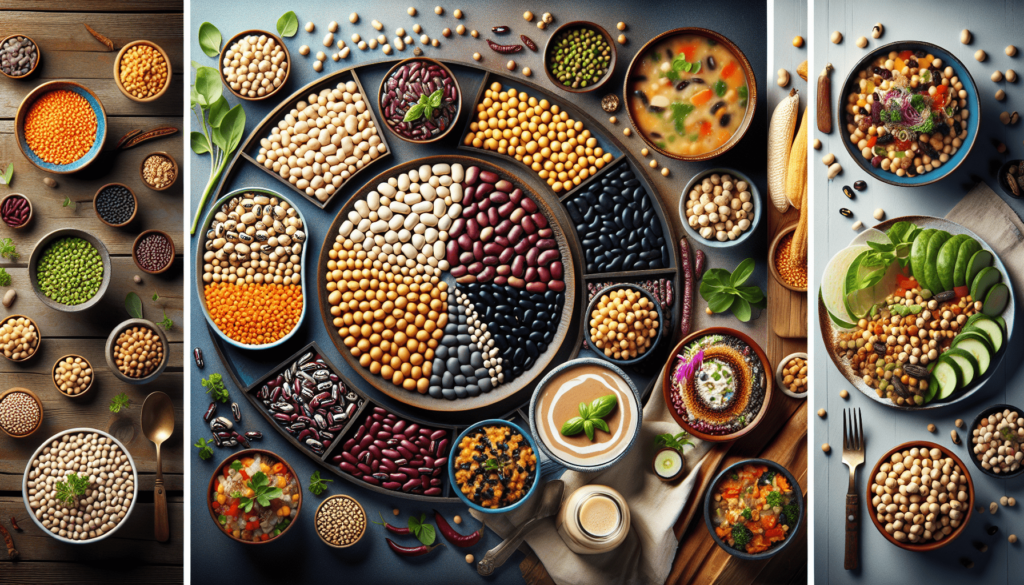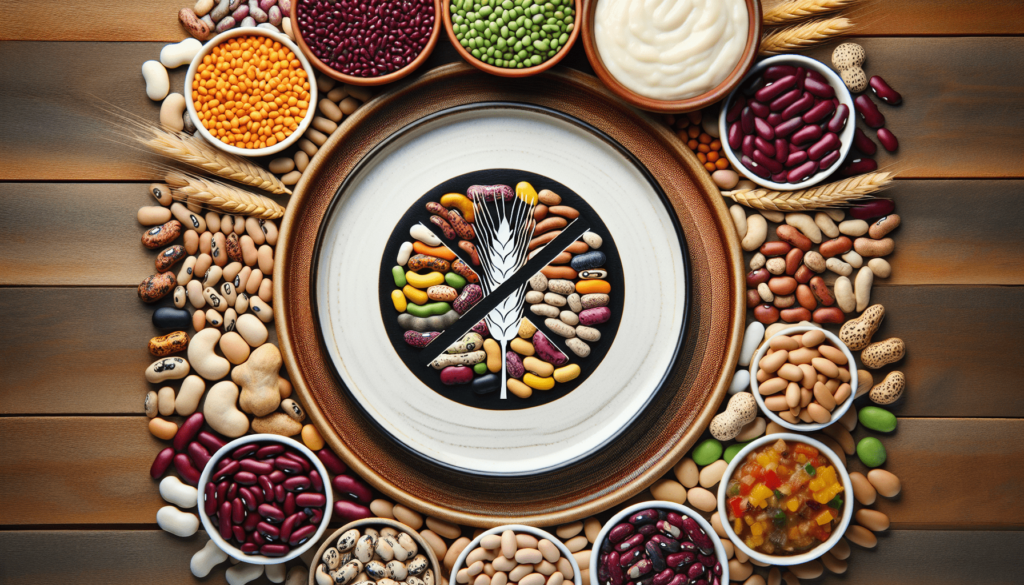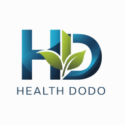Beans are a versatile and beloved food staple for many, but if you follow a gluten-free diet, you may be wondering if they can still be a part of your meals. Luckily, the answer is yes! Beans can indeed be included in a gluten-free diet, providing not only a great source of protein and fiber but also a variety of vitamins and minerals. In this article, we will explore why beans are a safe and nutritious choice for those avoiding gluten, giving you the confidence to add them to your gluten-free menu. So get ready to dig into the world of beans and discover how they can complement your gluten-free lifestyle!
Understanding Gluten
Definition of gluten
Gluten is a type of protein commonly found in grains such as wheat, barley, and rye. It plays a vital role in giving dough its elasticity and helping bread products rise. However, for some individuals with gluten-related disorders, consuming gluten can lead to adverse health effects.
Common gluten-containing foods
A wide range of foods contain gluten, such as bread, pasta, cereal, and baked goods. Additionally, gluten can also be found in less obvious sources like soups, sauces, and processed meats. It is crucial for individuals following a gluten-free diet to be aware of these hidden sources to ensure they avoid gluten-containing foods.
Gluten-related disorders
Gluten-related disorders are a group of medical conditions where the consumption of gluten triggers an abnormal immune response in the body. The most well-known gluten-related disorder is celiac disease, an autoimmune disorder that damages the small intestine. Other gluten-related disorders include non-celiac gluten sensitivity and wheat allergy. These conditions can cause a range of symptoms, including digestive issues, fatigue, and skin problems.
What Is a Gluten-Free Diet?
Definition of a gluten-free diet
A gluten-free diet is a dietary approach that eliminates the intake of gluten-containing foods. It is primarily recommended for individuals with gluten-related disorders, such as celiac disease or non-celiac gluten sensitivity. By avoiding gluten, these individuals can manage their symptoms and prevent further damage to their health.
Foods to avoid on a gluten-free diet
To adhere to a gluten-free diet, it is essential to avoid foods that contain gluten. This includes obvious sources like bread, pasta, and cereals made from wheat, barley, or rye. Additionally, individuals must also be cautious of hidden sources of gluten, such as sauces, dressings, and even certain medications and vitamins.
Health benefits of a gluten-free diet
For individuals with gluten-related disorders, following a strict gluten-free diet can have numerous health benefits. It can help alleviate digestive symptoms, promote gut healing, and reduce the risk of developing complications associated with these conditions. However, it is important to note that a gluten-free diet is not inherently healthier for individuals without gluten-related disorders.

Are Beans Gluten-Free?
Types of beans
Beans are a versatile and nutritious food group that comes in various types, including black beans, kidney beans, chickpeas, and lentils. They are rich in protein, fiber, vitamins, and minerals, making them an excellent addition to a balanced diet.
Gluten content in beans
Beans, in their natural form, are gluten-free. They do not typically contain any gluten proteins. Therefore, beans can be safely consumed by individuals following a gluten-free diet without causing adverse reactions related to gluten intake.
Certified gluten-free beans
While beans are inherently gluten-free, cross-contamination can occur during the manufacturing and packaging processes. To ensure the safety of individuals with gluten-related disorders, it is advisable to look for certified gluten-free beans. These beans have undergone testing and meet specific standards to ensure they are free from gluten contamination.
Health Benefits of Beans
Nutritional value of beans
Beans are nutritional powerhouses, packed with essential nutrients. They are an excellent source of plant-based protein, fiber, complex carbohydrates, vitamins, and minerals. Consuming beans as part of a balanced diet can contribute to improved overall health and well-being.
Role of beans in a balanced diet
Incorporating beans into a balanced diet has several benefits. The high protein and fiber content in beans can help promote satiety, making them a great addition to meals for weight management. Additionally, beans can contribute to better blood sugar control, heart health, and improved digestion.
Disease prevention
The consumption of beans has been linked to a reduced risk of various chronic diseases. Their fiber and antioxidant content can help lower cholesterol levels, reduce the risk of heart disease, and promote optimal gut health. Beans are also associated with a decreased risk of certain types of cancer, including colorectal cancer.

Including Beans in a Gluten-Free Diet
Cooking with beans
Incorporating beans into a gluten-free diet can be done in various ways. Beans can be cooked and used as a base for soups, stews, and chili. They can also be mashed and used as a spread or filling in sandwiches or wraps. Additionally, beans can be added to salads, grain bowls, and even baked goods, such as gluten-free brownies, to boost their nutritional value.
Bean-based gluten-free recipes
There is an abundance of delicious gluten-free recipes that feature beans as the star ingredient. From bean burgers and falafels to bean-based dips and spreads, the possibilities are endless. These recipes not only provide individuals with gluten-related disorders a safe and enjoyable dining experience but also offer a nutritious and flavorsome alternative to traditional gluten-containing dishes.
Tips for incorporating beans
To make the most out of beans in a gluten-free diet, here are a few tips:
- Start by experimenting with different types of beans to find your favorites.
- Consider incorporating beans into meals at least a few times a week for optimal nutrition.
- Soak dried beans overnight before cooking to help reduce their cooking time.
- Explore different seasoning options to add flavor to your bean dishes.
- Get creative with bean-based desserts, such as black bean brownies or chickpea cookies.
Potential Risks or Considerations
Cross-contamination with gluten
While beans are naturally gluten-free, cross-contamination can occur during handling, processing, and packaging. Individuals with gluten-related disorders should be cautious and ensure they purchase beans from reputable sources or opt for certified gluten-free beans to minimize the risk of inadvertent gluten exposure.
Digestive issues
It is worth noting that some individuals may experience digestive issues when consuming beans. This is not related to gluten but rather the complex carbohydrates and fibers present in beans. Soaking beans before cooking, properly draining and rinsing them, and gradually increasing bean consumption can help minimize digestive discomfort. If symptoms persist, it is advisable to consult a healthcare professional.
Personal sensitivities or allergies
While beans are generally well-tolerated, some individuals may have specific sensitivities or allergies to certain types of beans. For example, individuals with a known allergy to soy should avoid soybeans. It is essential to be aware of personal sensitivities and consult a healthcare professional if there are any concerns or adverse reactions when consuming beans.
Bean Alternatives for Gluten-Free Diets
Other gluten-free legumes
In addition to beans, there is a wide variety of gluten-free legumes that can be included in a gluten-free diet. Examples include lentils, chickpeas, peas, and peanuts. These legumes offer similar nutritional benefits and can be used as alternatives in recipes that call for beans.
Grains and pseudo-grains for variety
To diversify a gluten-free diet, incorporating alternative grains and pseudo-grains can provide variety and additional nutrients. Quinoa, rice, corn, millet, and buckwheat are gluten-free grains that can be used as substitutes for gluten-containing grains like wheat or barley.
Protein alternatives
For individuals following a gluten-free diet, it is important to ensure an adequate intake of protein. Apart from beans and legumes, other protein sources to consider include lean meats, poultry, fish, eggs, dairy products, and plant-based sources like nuts, seeds, and tofu. Incorporating a combination of these protein-rich foods can help meet daily protein requirements.
Gluten-Free Labeling and Certifications
Understanding gluten-free certifications
To make it easier for individuals with gluten-related disorders to identify safe food options, various gluten-free certifications exist. These certifications ensure that the labeled products meet strict standards for gluten content and are safe for consumption by individuals following a gluten-free diet. Examples of reputable gluten-free certifications include the Certified Gluten-Free logo and the Gluten-Free Certification Organization (GFCO) logo.
Checking labels for gluten content
Reading food labels carefully is essential when following a gluten-free diet. Ingredients derived from gluten-containing grains, such as wheat, barley, or rye, must be clearly listed on the label. Additionally, some manufacturers may voluntarily include a “gluten-free” statement on their packaging to indicate that the product is safe for individuals with gluten-related disorders.
Ensuring safe consumption
While certifications and labels provide guidance, it is crucial to remain vigilant and double-check ingredients lists regularly. Manufacturers may change their formulations or sources, potentially affecting the gluten content of the product. Establishing a habit of checking labels and seeking out certified gluten-free products can help ensure safe consumption.
Consulting a Healthcare Professional
Individual dietary needs
When considering any significant dietary changes, including adopting a gluten-free diet, it is advisable to consult a healthcare professional. They can provide personalized guidance based on individual dietary needs, medical history, and any specific gluten-related disorders or concerns.
Gluten-related disorders
Healthcare professionals, such as doctors, dietitians, or nutritionists, can diagnose and provide appropriate management for gluten-related disorders. They can help individuals navigate the complexities of a gluten-free diet, address nutritional concerns, and ensure optimal health outcomes.
Seeking advice and guidance
If experiencing symptoms that may be related to gluten consumption or considering a gluten-free diet, seeking advice and guidance from a healthcare professional is essential. They can evaluate symptoms, test for gluten-related disorders if necessary, and provide evidence-based recommendations to support overall health and well-being.
Conclusion
Beans can undoubtedly be a valuable part of a gluten-free diet. They are naturally gluten-free and provide numerous health benefits, including being a great source of protein, fiber, and essential nutrients. Incorporating beans into a gluten-free diet offers not only nutritional advantages but also an array of diverse and delicious options. However, it is important for individuals with gluten-related disorders to be cautious of potential cross-contamination and to consult a healthcare professional for guidance on managing their specific dietary needs. Enjoying the nutritional benefits of beans while following a gluten-free diet is not only achievable but also enjoyable with the wide range of bean-based recipes and alternatives available.
